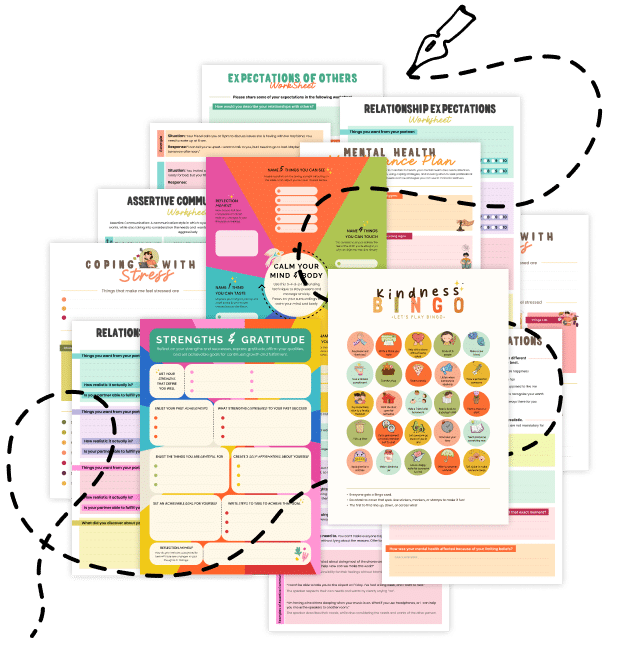20 Things You Should Know About Distraction Inoculation
Enhance your focus and productivity by mastering Distraction Inoculation—what it is, why it matters, and how you can build mental resilience against interruptions. Discover how training your brain to handle distractions can boost your efficiency, improve learning, and support a more balanced, high-performing mindset.
1. What Is Distraction Inoculation?
Distraction Inoculation is a set of strategies designed to expose you to minor distractions in controlled ways, so your brain becomes better at filtering them out over time.
2. Strengthening Mental Resilience
By regularly practicing distraction inoculation, you can train your brain to remain focused even in less-than-ideal environments.
3. Preventing Cognitive Overload
Learning to manage distractions helps reduce cognitive load, allowing you to concentrate on tasks without being derailed by interruptions.
4. Enhancing Concentration
With effective distraction inoculation techniques, you can improve your sustained attention and boost overall concentration.
5. Training Through Exposure
Gradually exposing yourself to distractions in a structured way builds a “tolerance” that makes everyday interruptions less disruptive.
6. Improving Task Switching
Developing the ability to quickly refocus after a distraction minimizes the cost of task switching and maintains productivity.
7. Applications in Digital Workspaces
Using digital tools and apps to simulate distractions during practice sessions can help you prepare for real-world interruptions.
8. The Role of Mindfulness
Mindfulness techniques, such as focused breathing and body scans, can support distraction inoculation by sharpening your awareness of when your attention drifts.
9. Building Adaptive Focus
Distraction inoculation helps you adapt your focus dynamically, ensuring that even unexpected interruptions don’t derail your workflow.
10. Enhancing Self-Regulation
As you become more adept at managing distractions, you improve your overall self-regulation and control over your cognitive resources.
11. Reducing Stress and Frustration
Learning to cope with distractions can reduce the stress and frustration that often accompany interruptions, leading to a calmer mind.
12. Encouraging Structured Breaks
Scheduling deliberate breaks can serve as a form of inoculation by allowing your mind to rest and reset between periods of deep work.
13. Fostering a Proactive Mindset
By anticipating potential distractions and planning how to handle them, you cultivate a proactive rather than reactive approach to your work.
14. Enhancing Learning Efficiency
With improved focus, you can absorb information more effectively, boosting your learning outcomes and memory retention.
15. Developing Consistent Work Habits
Integrating distraction inoculation into your routine can lead to more consistent and effective work habits over time.
16. Leveraging Environmental Design
Creating a workspace that minimizes unnecessary distractions is a key component of effective inoculation, making it easier to practice focused attention.
17. Utilizing Technology Wisely
Turn off non-essential notifications or use focus-enhancing apps to create a digital environment that supports your training.
18. Measuring Your Progress
Keep track of how well you rebound from distractions to monitor improvements in your focus and overall productivity.
19. Integrating with Other Focus Strategies
Distraction inoculation works best when combined with other focus-enhancing techniques, such as time-blocking, the Pomodoro Technique, and mindfulness.
20. Related Topics to Explore
- Directed Attention Fatigue – Understand how prolonged focus can deplete your mental resources.
- Task Switching Costs – Learn how frequent shifts between tasks can impact productivity.
- Mind-Wandering Mode – Discover the balance between focused and unfocused thinking.
- Cognitive Load Theory – Explore how managing mental workload improves performance.
- Self-Imposed Cognitive Limitations – Identify and overcome internal barriers to maintaining focus.
Quick Tips to Boost Your Distraction Inoculation
- Practice in Controlled Settings: Gradually expose yourself to mild distractions during focus sessions to build resilience.
- Design a Focused Environment: Create a workspace that minimizes unnecessary interruptions while still allowing for occasional distractions as practice.
- Use Focus Tools: Employ apps or techniques like the Pomodoro Technique to structure work and break periods effectively.
- Incorporate Mindfulness: Regular mindfulness practice can help you become more aware of when your attention drifts and guide it back.
- Review and Reflect: Periodically assess your ability to recover from distractions and adjust your strategies to continuously improve your focus.
Embrace these insights and tips to harness the power of Distraction Inoculation, empowering you to manage interruptions, maintain deep focus, and achieve peak cognitive performance even in a world full of distractions!


